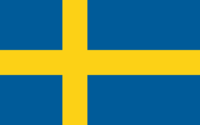Sloth is the sin of doing nothing at all, and is one of the Seven Deadly Sins. Sloth can take the form of general laziness and reluctance to exert oneself, or a failure to do specific things that one ought to do. For example, a man who stands idly by while a crime is committed instead of stepping in to prevent it is guilty of sloth, even if he is not directly involved in the crime itself. An eligible voter who knows nothing about candidates running for election to an important office and has no interest in knowing either them or anything about the issues affecting the safety and well-being of families and the community, local, regional, national, and international, is guilty of sloth.
One of the most famous examples of sloth is Pontius Pilate's 'washing his hands' of Jesus' case and allowing Him to be put to death, when it was in his power to free Him. More generally, inactive rulers may be considered slothful: Dante's Purgatorio has a whole section devoted to rulers such as Henry III who did little wrong, but did not use their power to advance the cause of good.
Sloth in Christians
Christians guilty of sloth have no interest in learning more about Christianity, about the Bible, about witnessing to others, about defending the faith, about corporal and spiritual works of mercy, or about the Four Last Things: Death, Judgment, Heaven and Hell. The commandment in 1 Peter 3:15 is either unknown or ignored. See Christian In Name Only and Invincible ignorance.
Atheism and sloth
See also: Atheism and sloth and Atheism and apathy
Atheism, sloth and lower economic productivity
Overall, atheistic societies have tended to have higher rates of sloth and as a result have eventually experienced economic problems (see: Atheism and sloth).

In the former Soviet Union, a popular joke was that the workers pretended to work and the Soviet Union pretended to pay them.[1] A study performed in the former Soviet Union found that over 50% of the work force admitted to drinking alcohol while on the job (See also: Atheism and alcoholism).[2] In China, the growth in religion has accompanied China's fast economic growth over the last twenty years.[3]
Western Europeans work less hours than Americans and workers in many other countries.[4][5][6] Commenting on this matter, Niall Ferguson wrote a 2004 article published in The Telegraph entitled, "The atheist sloth ethic, or why Europeans don't believe in work".[7]
Niall Ferguson also noted in his article:
| “ | There are, for example, many more Europeans out of work than Americans; over the past decade, US unemployment has averaged 4.6 per cent, compared with 9.2 per cent for the EU. Another difference is in labour participation. Between 1973 and 1998, the percentage of the American population in employment rose from 41 to 49 per cent. But in Germany and France, the equivalent percentage fell to, respectively, 44 and 39 per cent.[8] | ” |

Aging populations in secular Europe/Japan and sub-replacement fertility rates is leading to economic stagnation in those regions (see: Atheistic societies, low fertility rates and the work associated with raising children).[10] Reuters reported in 2015, "Japan plans to include steps to raise the birth rate, such as easier access to childcare and tax incentives, in a package of reforms due this month to tackle the biggest bottleneck to economic growth."[11]
The regions of secular Europe which are performing better than the rest of Europe often have a cultural legacy of the Protestant work ethic. For example, a 2011 Telegraph article noted: "Either way, not a single Protestant or Germanic EU country has so far needed a bailout."[12] The Protestant Reformation started in Germany and Germany has one of the strongest economies of Europe.
Due to lower economic productivity, atheistic communism/socialism can lead to a country to eventual financial ruin or significant economic problems which is what occurred to the Soviet Union and is currently happening in secular Europe via the Eurozone financial crisis (see: Sloth in atheistic communist countries and Sloth and Secular Europe's economic crisis).
Sloth and poor atheistic responses to theistic arguments
See: Sloth and poor atheistic responses to theistic arguments
Atheism, sloth and obesity
See also
References
- ↑ You Pretend to work and Putin pretends to pay you
- ↑ Communism and computer ethics
- ↑ The Protestant Work Ethic: Alive & Well…In China By Hugh Whelchel on September 24, 2012
- ↑ Why Europeans work less hours than Americans, Forbes
- ↑ Check Out How Much The Average American Works Each Year Compared To The French, The Germans, And The Koreans, Business Insider
- ↑ Who works the longest hours?, BBC, 2012
- ↑ The atheist sloth ethic, or why Europeans don't believe in work by Niall Ferguson, The Telegraph, 2004
- ↑ The atheist sloth ethic, or why Europeans don't believe in work by Niall Ferguson, The Telegraph, 2004
- ↑ New 'feminist' government with a Green tinge in Sweden
- ↑ What's Really Behind Europe's Decline? It's The Birth Rates, Stupid, Forbes magazine, 5/30/2012
- ↑ Japan targets boosting birth rate to increase growth
- ↑ Another Catholic country needs a bailout
| ||||||||||||||
